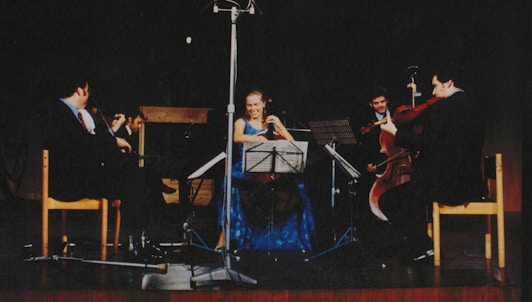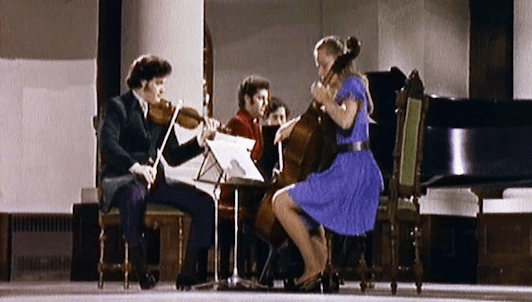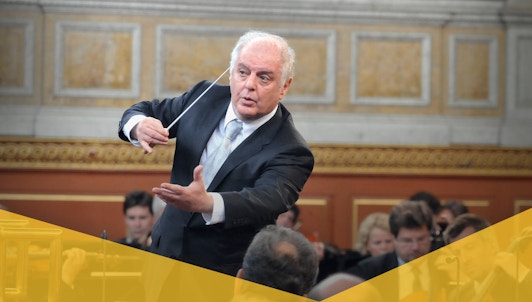Jacqueline du Pré caught the public imagination when she was still in her teens, partly because she had a very unusual and elevated relationship with the Elgar Cello Concerto. For critics and public alike, her performances focused new attention on the inherent pathos in Elgar's melancholy masterpiece and had an emotional quality that has never been matched by anyone else.
She played it first at the Royal Festival Hall in London on 21 March 1962 when she was just seventeen years old. On the following morning, Neville Cardus, one of England's most distinguished writers on music, described the work in The Guardian as "A swan-song of rare and vanishing beauty", and he reviewed her performance of it in such strong and poetic terms as any seventeen year old has ever received from a senior critic. He concluded his review with these words: "Those actually present were witness, on the first day of spring, to an early blossoming in Miss du Pré's playing, and such a beautiful blossoming as this year, or any other year, is likely to know for a long time to come."
In the next few years, Jacqueline du Pré won an enthusiastic audience for the concerto, not only in the United Kingdom but in the rest of Europe, in the United States and in the Soviet Union. She played the work for the last time in 1973, when her brilliant career as one of the finest musicians that Britain has ever produced, was cut short by multiple sclerosis. After 1973, she could no longer play the cello, but she remained a brave and adventurous spirit, her passion for music undimmed and her attitude in coming to terms with her illness as touching as it was courageous.
"This film begins with an account of her activities after the onset of her illness. It ends, at Jacqueline du Pré's request, with a re-edited version of the film which we made with her in 1967, a film which sketches her childhood and the development of her musical talent, her meeting with Daniel Barenboim and their marriage in 1967, her relationship with the Elgar Concerto and, finally, a complete performance of the work with the New Philharmonia Orchestra conducted by Daniel Barenboim – a performance that is remarkable by any standards and, for many, quite unforgettable."
Christopher Nupen
There are contributions by Daniel Barenboim, Sir John Barbirolli, Charles Beare (who looked after her cellos throughout her career), William Pleeth, Iris and Derek du Pré (Jacqueline du Pré's parents) and with music by Camille Saint-Saëns, Iris du Pré , François Couperin, Enrique Granados, Max Bruch, Johannes Brahms and Edward Elgar.


